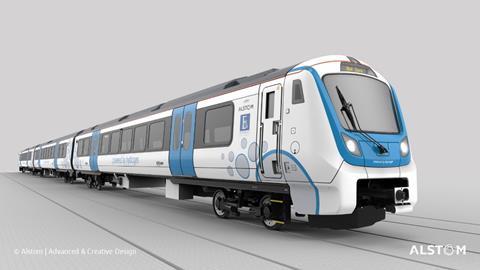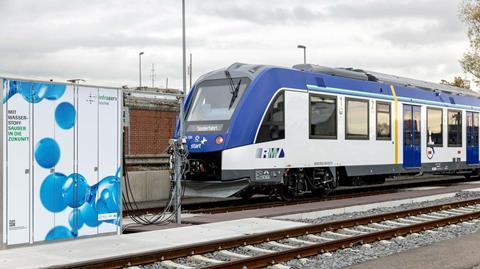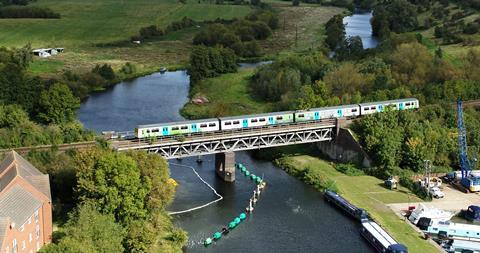
UK: A government commitment to procuring hydrogen trains and refuelling infrastructure is required to kick-start deployment and achieve faster decarbonisation of the rail network, according to Hydrogen UK.
The hydrogen sector trade association has published a Hydrogen Transport Benchmarking report, presenting a high-level overview of the UK’s current deployment and policies and drawing comparisons with other countries.
The report calls for the government to publish a Hydrogen in Transport Strategy across modes to enable synergies to be identified. It also recommends the creation by 2023 of a minimum viable network of 200 refuelling stations of >1 tonne/day capacity, and the roll-out of more ‘hydrogen ecosystems’ such as that being taken forward in the Tees Valley in northeast England. These aim to aggregate various demands to de-risk supply investment.
For the rail sector, the report says electrification is ‘widely acknowledged to be the most suitable method to decarbonise the bulk of the railway’. Hydrogen is most suited to longer-distance rural routes, with Network Rail having identified up to 1 300 km of more than 15 000 km of unelectrified railway where it could be used to help achieve the government’s 2050 net zero goal.

The report notes that Germany and France have shown ‘significantly more ambition’ than the UK in the hydrogen train sector, with vehicles in service or on order in Niedersachsen, Frankfurt and four regions of France, while Italy has also ‘shown leadership’ with contracts placed.

In contrast the UK has demonstration projects but no firm orders.
Commenting on the report published on March 2, Andy Walker, Technology Market Insights Director at chemicals company Johnson Matthey, said ’the UK got off to a great start in the clean hydrogen race, but now needs to accelerate urgently to avoid being left behind as other nations start to implement their national hydrogen strategies and provide policy support’.



